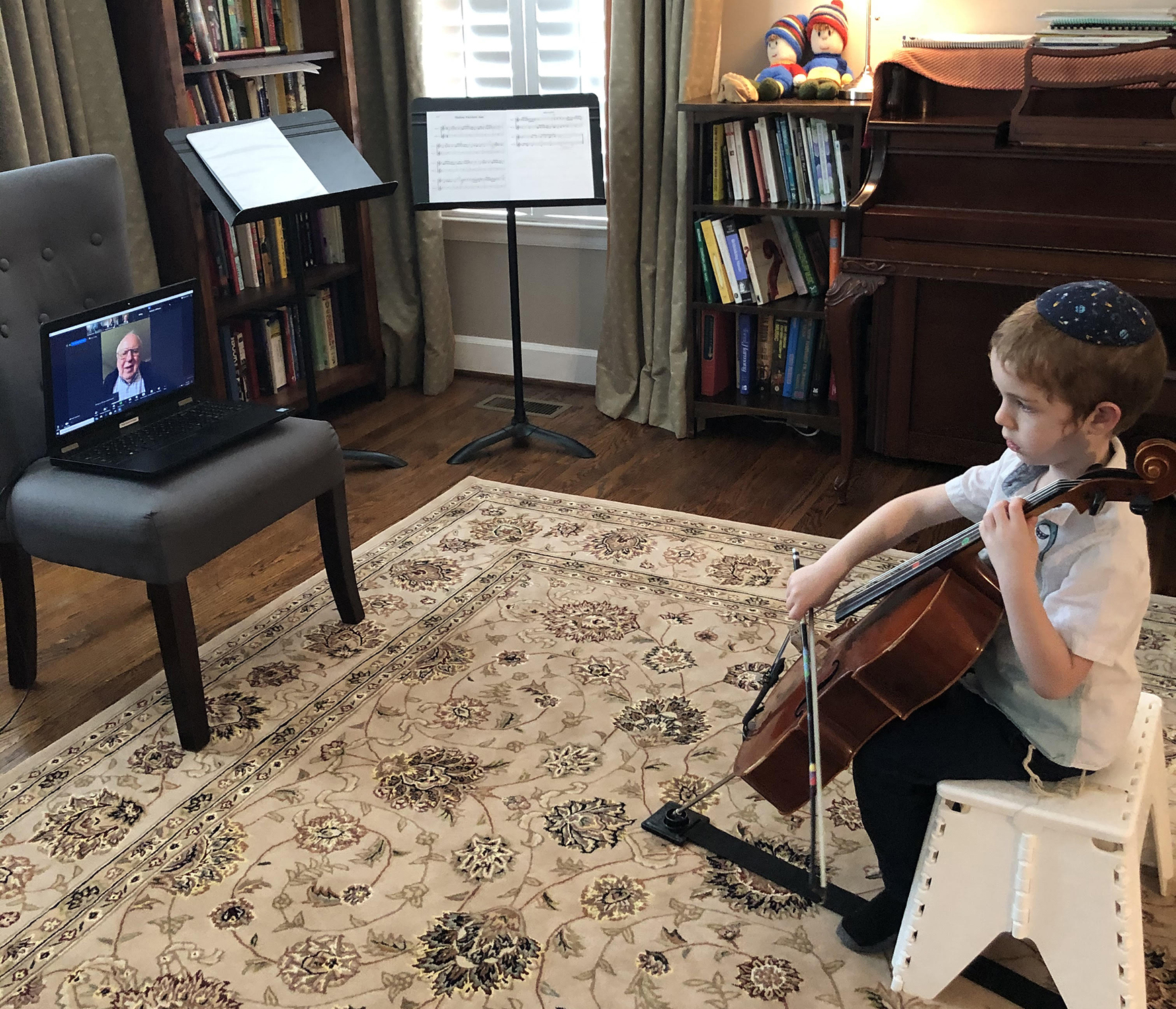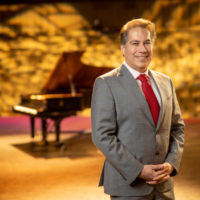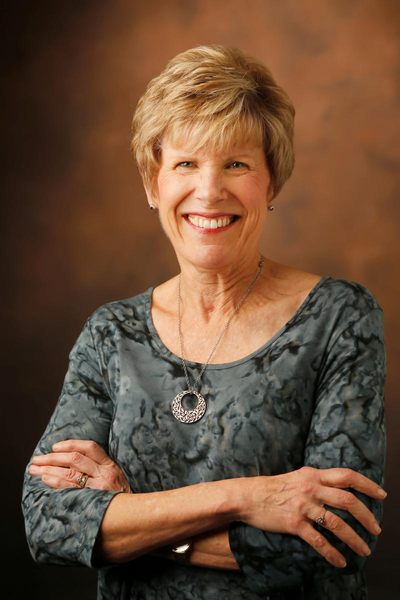
Since the COVID-19 pandemic began, many music schools have canceled live performances and curtailed in-person lessons. Ensembles, choirs and chamber music, essentially any activity involving groups of musicians, have been put on hold. However, Blair Academy at Vanderbilt, the music education program for children, youth and adults at Vanderbilt University Blair School of Music, has developed creative new approaches to build curriculum and share music.

“The inspiring success of the academy reflects just one way in which the Vanderbilt Blair School of Music has found and capitalized on unprecedented opportunities hidden within the challenges of a global pandemic,” said Lorenzo F. Candelaria, Martha Rivers Ingram Dean of the Vanderbilt Blair School. “Our increased capacities and skills to reach new and diverse communities through technology—something the arts world has resisted for some time—has established an important foundation for our work going forward. I could not be more proud of the entrepreneurial thinking showcased in 2020 by our faculty, students and staff.”

Pam Schneller, senior associate dean of Blair Academy and senior lecturer in choral music, said remote learning platforms do not always lend themselves well to musical instruction. “But we keep learning new things,” Schneller said. “For one thing, we’ve invested in microphones. Musicians need something better than what’s on a laptop computer. All the faculty have them now, and we also have them for the students to check out from the music library for three months at a time.
“We’re also finding that there are a lot of advantages for parents and students not having to get in the car and drive,” she said. “Faculty are excited because their students are practicing more and making significant progress in a shorter amount of time.”
While recitals are not being held, precollege students are giving virtual concerts for senior citizens. “We’re doing three every week just to retirement facilities,” Schneller added.
Choirs and ensembles are also utilizing video conference technology by working in smaller groups or focusing on cultural aspects of the music and bringing in guest artists. Enrollment for Vanderbilt Youth Orchestras and the Blair Children’s Chorus program, with groups at every level of age and ability, numbers 372, which is very close to usual enrollment for these groups. “It’s astonishing that our youth orchestras and children’s choirs are meeting quite successfully,” Schneller said, “given that readily available video conferencing technology does not yet allow for the synchronous blending of voices or instruments.”
Remote learning has allowed other precollege students to enroll in additional classes. Myra Jackson Blair scholars, Blair Academy’s most accomplished scholarship students, often drove to Blair from great distances before the pandemic. These high school students, most of whom plan a career in music, currently represent six states.
“They’re now able to take more classes during the semester—like theory, musicianship and music history—because we’re teaching them all online,” Schneller said. “The online platform gives us a way to reach these students who in the past would drive to Blair only one day a week because they were coming from such distances.”
The adult program has actually increased in enrollment. Adults who are out of state and even out of the country are now enrolling in classes like Music to Picture, taught by composer/producer/musical director Doug DeAngelis. This series, which began in the fall with students from six states, teaches how music is scored in the film and television industry. Adjunct Instructor of Songwriting Deanna Walker’s Hit Songwriter Series enrolled students from California to Canada this fall who learn from music industry professionals about the artistic process of writing songs. Mitchell Korn, senior lecturer of music and educational outreach, teaches numerous classes in his series Music and Culture for Adults. His Symphony 101 this fall enrolled students from three states. Schneller is working to interest alumni in these courses too.
Thomas Verrier, associate professor and director of wind studies, is using video conferencing technology to teach students internationally, a new form of outreach for Blair Academy. His certificate program Curso Virtual de Dirección de Banda is an innovative yearlong, four-module course in conducting and instrument pedagogy for band directors in Central and South America. Verrier, who is fluent in Spanish, has 23 students from eight Central and South American countries enrolled in the first two modules.
“We’re just getting started,” Schneller said. “I think there are a lot of possibilities that we can explore to create connections, both with new students in Nashville and beyond.”